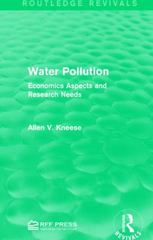Principles of Islamic Jurisprudence
In the Holy Month of Ramadan, Usman started travelling to a far off city, where he shall reach within 2 days. His family was not along with him in the journey and waited for his return being at home. On the way he passed by a Janazah prayer which almost 40 people were about to start, but he neglected its performance and moved on. On reaching his destination, he met a trader who was selling an antique watch for Rupees 30,000. Usman had a saving of Rs. 20,000 only, so he requested the trader to give him some time to arrange the rest of Rs. 10,000. But the trader stipulated a condition that if he delays and makes a deferred payment, he will have to pay Rs. 35,000 in total; whereas in case of prompt payment he can pay the original amount of Rs. 30,000. The other day, Usman visited a renowned Mujtahid at a Fatwa Institute of that city to listen to the resolution of various queries. There came a man who asserted that it is Al-Sunnah Al-Fi'liyyah to learn the trading skills of the Prophet plus ek al Le. Another man asked the Mujtahid if he could conduct a telephonic Nikah. The Mujtahid gave the ruling of permissibleity and 7 other jurists present at that institute also affirmed his ruling explicitly. Usman also witnessed one of the jurists giving a ruling of prohibition over the usage of Cocaine drug. Questions: 1. What are the rulings of Prayer and Fast for Usman and his family while he was travelling? (4) 2. What Obligation-creating rule was applicable on Usman with respect to the Janazah prayer? Will he be sinful for omitting it? (2) 3. What is the status of the contract which the watch trader has offered to Usman? Examine it in the light of the opinions of both the Hanaff and the Jamhur schools of thought. (4) 4. Is the claim of the person emphasizing over learning the trading skills similar to that of The Prophet valid? (1) 5. Does the permissiblety of the telephonic Nikkah given by the Mujtahid and affirmed explicitly by 7 other Mujtahids amount to lima' (Consensus of Legal Opinion)? Why? (2) 6. What methodology/source did the jurist employ while declaring the prohibition of Cocaine drug? (2)







